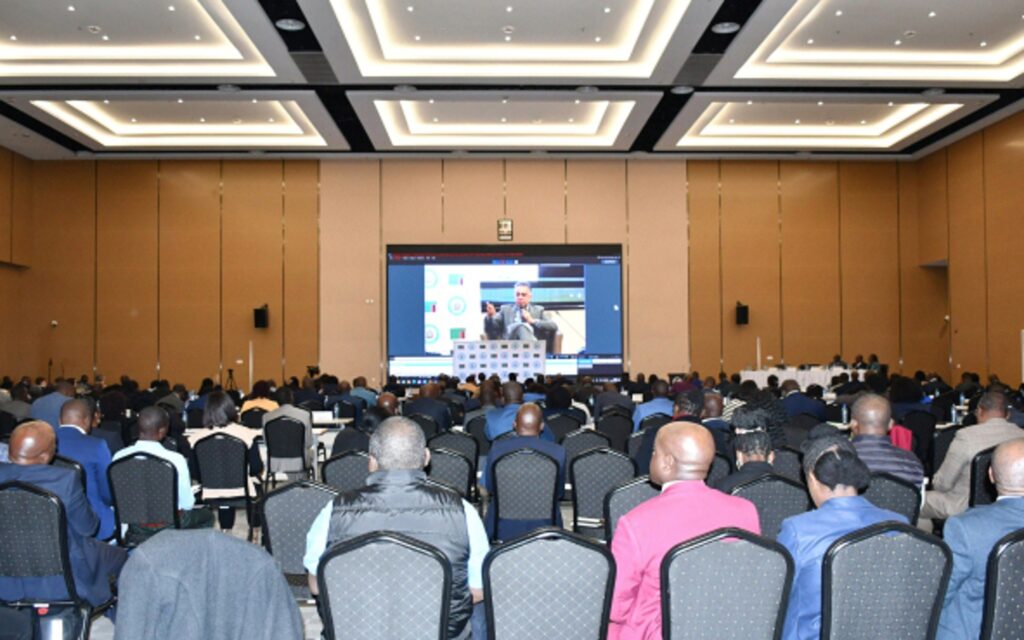Zambia Records Major Gains in Jobs, Energy and Enterprise in Q2 of 2025
Zambia has recorded significant progress across jobs, energy, enterprise, agriculture and social protection in the second quarter of 2025, with Government reaffirming its commitment to economic transformation and inclusive growth under the 8th National Development Plan (8NDP).
Speaking at the just-ended second quarter meeting of the National Development Coordinating Committee (NDCC), Minister of Finance and National Planning, Dr Situmbeko Musokotwane, MP, reported that reforms undertaken by the New Dawn Administration were yielding tangible results across all pillars of the 8NDP.
“Our reforms are working, and Zambia is on a clear recovery path. We are committed to sustaining this momentum—empowering youth and women, strengthening private sector growth, and working hand-in-hand with our development partners and investors,” he said.
Dr Musokotwane stressed that progress recorded in agriculture, mining, tourism, energy, and enterprise development demonstrated Zambia’s resilience and its steady transition towards private sector-led growth and sustained investor confidence.
Key milestones were achieved in agriculture, including the full roll-out of the Farmer Input Support Programme (FISP) e-voucher system across all 116 districts. Veterinary laboratories in Choma and Chipata became operational, aquaculture production hit 39,000 metric tonnes, and 530 farmers were linked to export markets in Europe and Mexico—far surpassing the target of 25.
Over 56,000 farmers were trained in crop production, with thousands more equipped in rice, cassava processing and food packaging. Meanwhile, 1,038 farms were allocated in farm blocks, and boreholes drilled to support resettlement schemes.
In mining, the Countrywide High-Resolution Aerial Geophysical Survey covered nearly a quarter of national territory, while the Zambia Gold Company purchased 13.9 kg of gold from artisanal miners, injecting cash into rural economies.
Tourism and infrastructure development saw over 1,300 km of access roads rehabilitated in game parks, surpassing the target of 840 km, with progress continuing on the Lusaka–Ndola Road PPP project.
In energy, renewable projects such as the Chisamba and Mailo solar plants added 125 MW to the national grid. Nearly 20,000 new customers were connected to electricity in Q2, while 14 new communication towers and 525 Starlink units expanded rural digital access.
Digital service delivery also surged, with 368 government services now available on ZamPortal, boosting non-tax revenues to K1.1 billion in the first half of 2025.
Enterprise development was also notable: over 1,400 MSMEs received support, while more than 11,000 new business registrations were recorded. The Citizens Economic Empowerment Commission (CEEC)’s District Value Chain Programme is projected to generate 65,000 jobs and K150 million in annual exports.
Progress was also registered in youth and women empowerment, education, health and social protection. Over 42,000 students benefitted from bursaries and loans—double the annual target—while 8,626 out-of-school children were re-enrolled.
More than 23,930 women benefitted from empowerment initiatives, with 16,098 trained in life and business skills. Youth participation also rose sharply, with over 3,800 young people trained in critical skills and more than 3,000 accessing business grants.
On health, the availability of essential medicines improved to 90% in health centres and 78% in hospitals, while maternal health indicators rose, with 88.7% of pregnant women accessing key antenatal services.
Social protection reached record levels, with 1.4 million households enrolled on the Social Cash Transfer Programme, while over 2.2 million people received emergency support following the 2024 drought.
Sustainability efforts advanced, with 673 new boreholes drilled and 227 piped water schemes built, benefitting more than 280,000 people. A total of 2,519 villages achieved Open Defecation Free status, while over 455,000 tree seedlings were planted and 1,049 hectares of plantations established.
The Government also pushed forward legal and governance reforms. Consolidated volumes of the Laws of Zambia up to 2019 were launched, while new digital platforms enabled over 73,000 citizens to access Constituency Development Fund (CDF) information.
More than 850 qualified staff were recruited into local authorities, and corruption prosecutions achieved a conviction rate of 67%.
Dr Musokotwane reaffirmed Government’s focus on transparency, accountability and decentralisation, highlighting that the progress achieved so far reflected Zambia’s resilience and the impact of bold reforms.
“The New Dawn Administration, ably led by President Hakainde Hichilema, will continue driving the country towards a prosperous, resilient and inclusive future,” he said.



